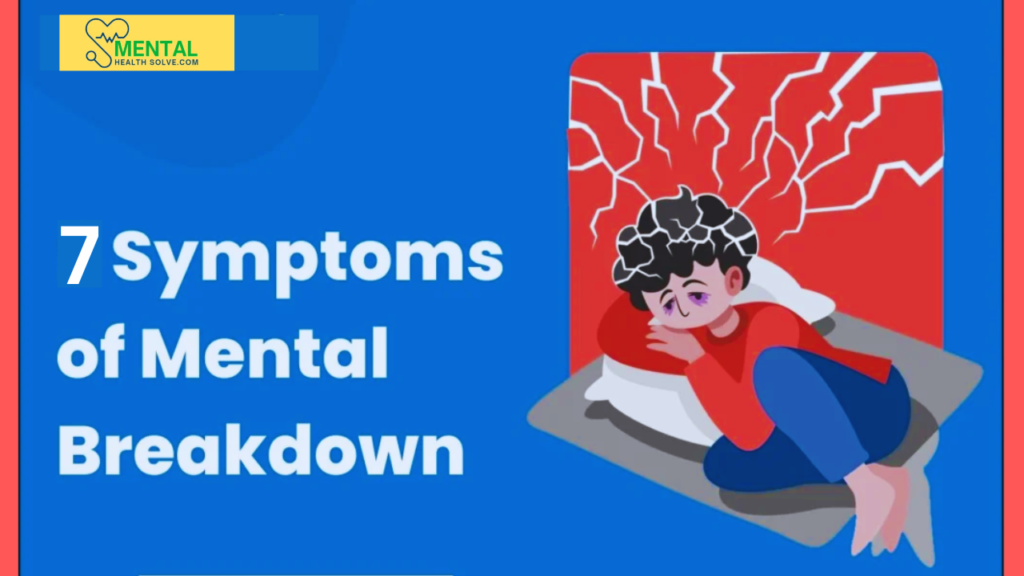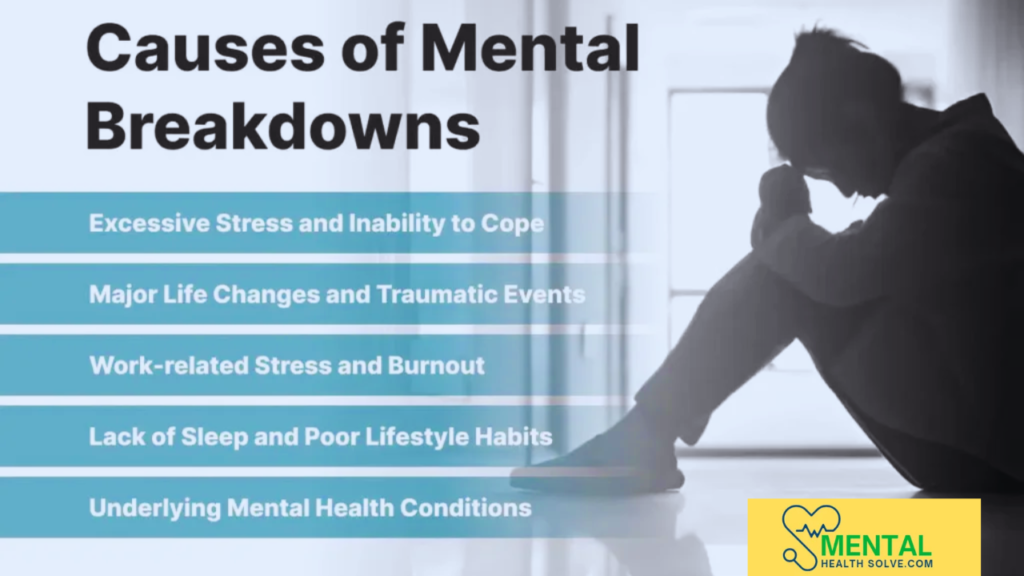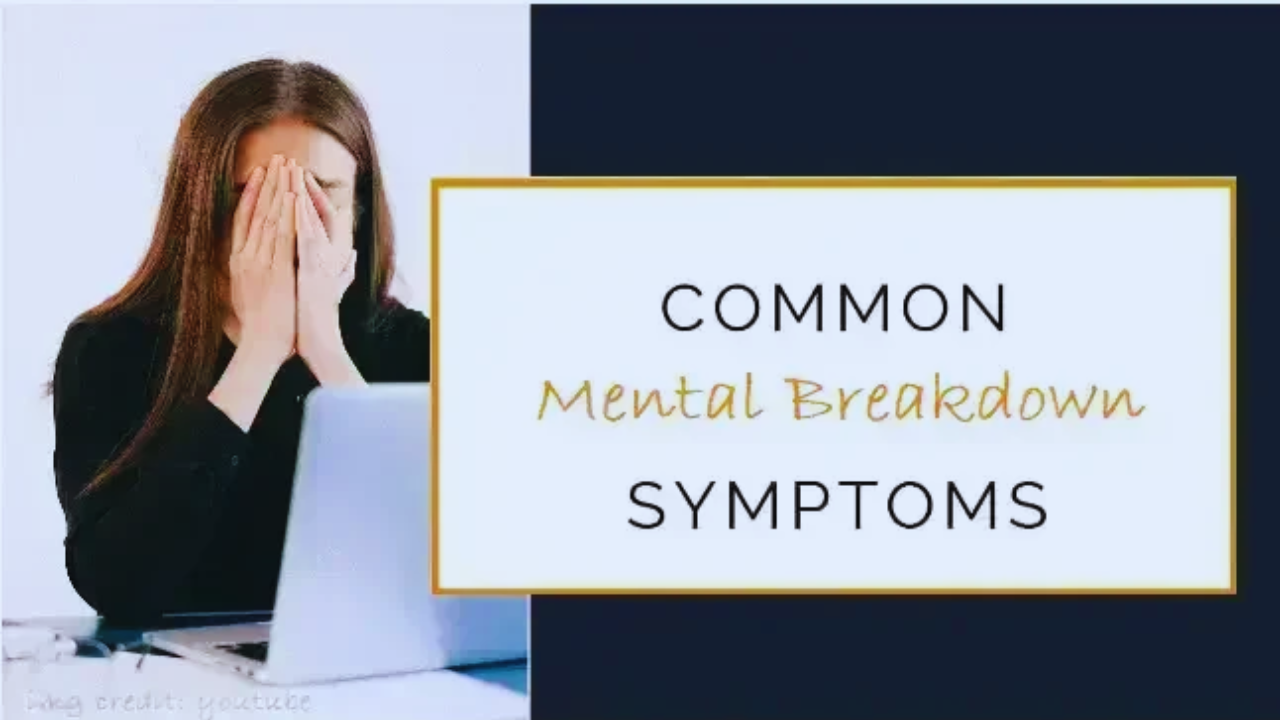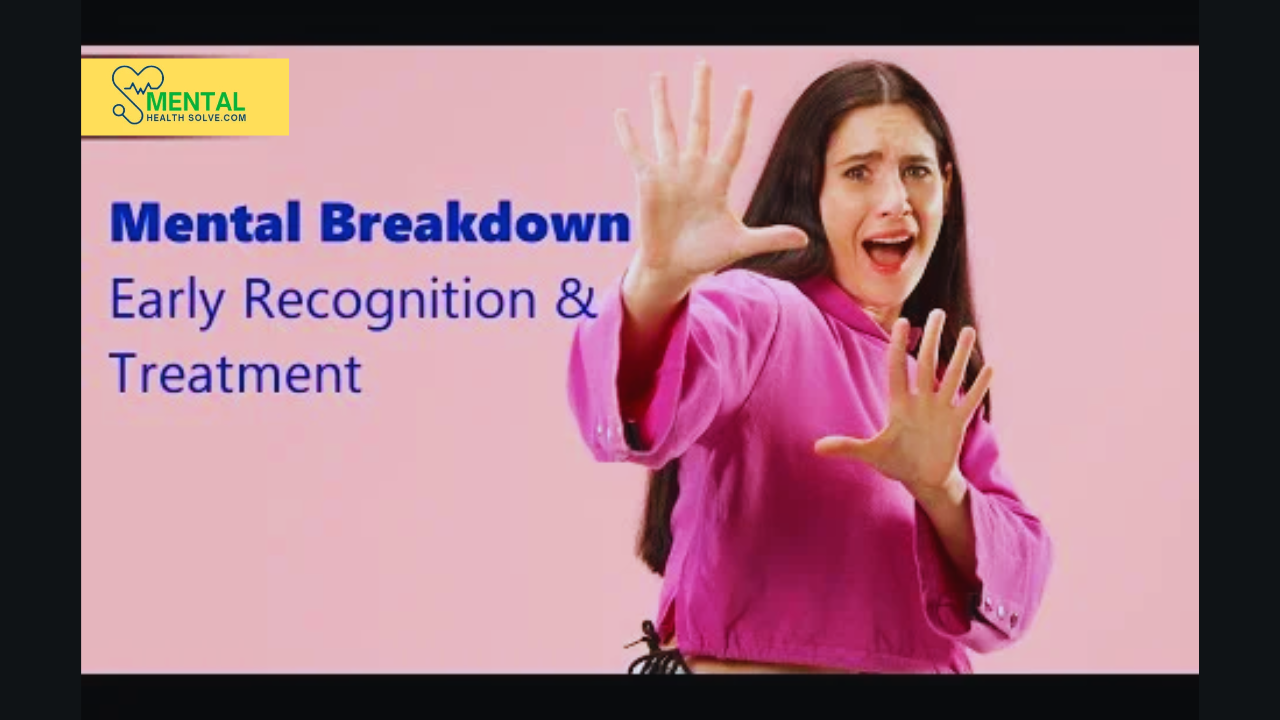
If you have ever felt close to a mental breakdown, you aren’t alone. The work-related stress, pressure to succeed, and parental responsibilities are causing more and more people to reach a crisis point. It is essential to understand that a mental breakdown may not always feel or look like a dramatic or sudden outburst.
Intense anxiety and stress can build up gradually over time. In this article, I will highlight the mental breakdown symptoms and provide guidance on how to treat this health condition when you need it.
The Basic Concept of A Mental Breakdown
A mental breakdown, often referred to as a ‘nervous breakdown,’ is not a clinical term or a specific mental health diagnosis. Instead, it describes a phase of overwhelming mental and emotional turmoil. While everyone encounters anxiety and stress under pressure, those feelings are typically manageable.
However, when feelings of anxiety or worry and stress become constant and escalate to a point where they disrupt daily life, people might say they’re experiencing a mental breakdown. During such times, handling everyday situations can become challenging, emotional responses may intensify, and several physical symptoms of a mental breakdown might appear in the body.
Mental breakdown physical symptoms often include heart palpitations, sweating, and shaking. These symptoms often arise when a person’s ability to handle stress is stretched to the breaking point. Stress management techniques, emotional support, and professional help when needed can be important to cope with a mental breakdown.
Mental Breakdown Symptoms: The Causes Behind It

A mental breakdown often happens due to overwhelming stress, emotional strain, or pressure. It occurs when someone can’t manage stress that surpasses their mental and emotional limits. Some factors that might trigger a mental breakdown include:
- Financial Problems: Financial stress, debt, and economic struggles can heighten stress levels and contribute to a mental breakdown.
- Extreme Work Life: A high-pressure work environment, heavy work-related responsibilities, and continuous demands can lead to a mental breakdown.
- Occasional Sources of Stress: High-stress situations that happen during specific times, like moving houses, exams, or job transitions, can also cause a mental breakdown.
- Not Able to Meet Personal Expectations: Facing challenges in reaching personal aspirations, not achieving goals, or falling short of expectations can also play a role in a mental breakdown.
- Communication Issues and Emotional Balance: Poor communication, struggling to maintain emotional stability, and not being able to fulfill emotional needs can worsen a mental breakdown.
- Emotional Issues: Traumatic events, family conflicts, losses, or relationship troubles can cause a mental breakdown.
- Health Issues: Coping with pain, chronic illnesses, or other health issues can be emotionally exhausting and may lead to a mental breakdown.
These factors can differ from one person to another and interact with different elements that influence a person’s threshold for experiencing a mental breakdown. Seeking professional help, receiving emotional support, and practicing stress management can be crucial in addressing these issues.
One mental health condition that might contribute to a mental breakdown is acute stress disorder (ASD). The Department of Veterans Affairs explains that ASD is a stress response occurring three days to one month after a traumatic incident.
What Are The Mental Breakdown Symptoms

Symptoms of a mental breakdown can differ from one individual to another. The root cause can influence the types of signs you might encounter. These mental breakdown symptoms can be:
- Behavioral
- Psychological
- Physical
The medical community doesn’t use the word “mental breakdown.” Instead, they refer to it through a broad range of symptoms that often emerge suddenly. Below are 7 key symptoms of mental breakdown to watch for:
- You Are Having Sleep Disorders
A good night’s sleep is crucial for both physical and emotional health. High stress levels can make it hard for some people to stay or fall asleep. On the other hand, some people might find themselves sleeping more than usual due to high stress levels.
Sleep disorders often accompany specific mental health issues like anxiety and depression. Moreover, insomnia and poor sleep quality can hinder your daily functioning ability and might worsen mental breakdown symptoms.
- You Are Experiencing Digestive Issues
Anxiety and stress can cause various stomach problems, including diarrhea, cramps, constipation, and bloating. For those with irritable bowel syndrome, stress can trigger flare-ups that lead to digestive discomfort.
If you’re feeling stressed and begin to experience any of these signs, it might be a warning sign that you are heading toward a mental breakdown.
- You Feel Depressed or Anxious
Are you feeling so anxious that daily life feels unmanageable? Or perhaps you’re experiencing such deep depression or sadness that it affects your ability to function? Both depression and anxiety are emotional reactions to long-lasting stress.
If you are on the verge of a mental breakdown, you might find yourself feeling helpless or crying uncontrollably. You might also experience emotional outbursts or intense feelings of anger that seem beyond your control.
- You Are Not Able to Concentrate
Studies indicate that long-term stress can impact your concentration levels and memory. This happens because it may lead to structural changes in various areas of the brain. If you’re experiencing a mental breakdown, you might struggle to focus, remember information, or make decisions. These cognitive signs can make it even harder to cope with the stress you are facing.
- You Are Withdrawing from Your Loved Ones
Individuals going through a mental breakdown may withdraw from friends, family, and colleagues. Symptoms of this withdrawal might include:
- Isolating themselves at home
- Skipping social events and gatherings
- Taking multiple sick leaves in the office
- Experiencing poor eating and sleeping habits
- Neglecting personal hygiene
- You Are Having A Panic Attack
If you are experiencing overwhelming and sudden anxiety, you might be having a panic attack. For some individuals, these attacks can occur as a reaction to intense stress. These panic attacks often come with physical symptoms such as:
- Shortness of breath
- Fast or irregular heartbeats
- Dizziness
- Shaking or trembling
- Excessive sweating
- Chest pain
- A dry mouth
- You Are Feeling Exhausted
Excessive stress can leave you feeling drained and fatigued. If you are going through a nervous breakdown, activities that you once found enjoyable might start to feel overwhelming. You might also sense that you lack the energy to tackle everyday tasks. In addition, your fatigue could stem from not getting enough sleep or, conversely, sleeping too much.
Mental Breakdown Symptoms Treatment

The goal of treating a mental breakdown is to restore emotional balance, alleviate the individual’s stress, and prevent future crises. Treatment typically takes a multidisciplinary approach and might contain the following techniques:
- Medicine: A psychiatrist may prescribe anxiolytics, antidepressants, or other medicines to help manage stress and restore emotional stability.
- Psychotherapy: One-on-one sessions with a therapist allow people to address the stressors they are facing.
- Lifestyle Changes: Regular exercise, sufficient sleep, and a nutritious diet can significantly enhance overall mental well-being. Striking a balance between social life and work while avoiding overcommitment can also lower the risk of a mental breakdown.
- Group Therapy: Joining others who are experiencing similar challenges provides valuable support and connection.
- Stress Management: Techniques like deep breathing, yoga, and meditation can effectively lower the body’s stress responses.
- Emotional Support and Social Connections: Receiving emotional support from friends, family, or support groups can strengthen an individual and increase their ability to manage stress.
Since everyone’s needs are unique, treatment plans are often tailored to the individual. Getting professional help can assist individuals in managing mental breakdowns, and with expert support, they can obtain a healthier mental balance.
Closing Remarks
Many people go through periods of anxiety, stress, and feelings of hopelessness, particularly after extremely challenging events. If you suspect you are experiencing mental breakdown symptoms, it is crucial to consult a doctor as soon as possible.
They can help identify any physical or mental health issues and find out the underlying causes of your mental breakdown. A doctor might refer you to another healthcare expert. They can also prescribe medications, offer therapy, or suggest lifestyle changes to address mental health conditions and help you develop healthier coping strategies for stress.
